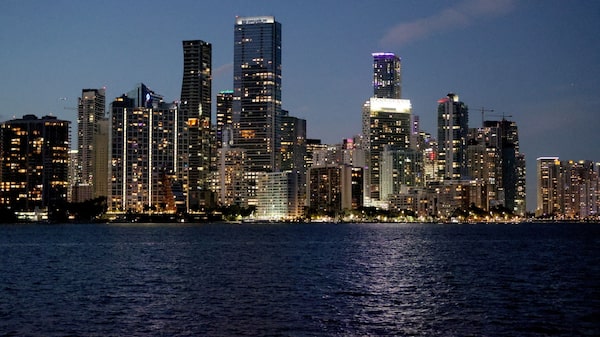In an interview with Bloomberg Línea, Fernando Yunes, senior vice president of Mercado Livre, said that the platform has removed between 80,000 and 90,000 individual sellers who were selling through the marketplace. According to him, it is a contingent of individuals who made sales as if they were companies. Those who refused to open a CNPJ (Brazilian company register), issue invoices, and pay taxes, were expelled from the platform.
The company, which was born in Argentina, said it is following the discussion around a possible new law to contribute to the legality of the activity. The statement comes after on Friday, O Globo published a story revealing that the Ministry of Economy is preparing a law to tax low-value imports between individuals. Until now, transactions of products worth up to $50 made between individuals were exempt from taxes.
According to O Globo, Brazilian Internal Revenue Service auditors suspect that there is tax evasion in products imported through e-commerce platforms, or that fraudsters declare products worth less than $50 to avoid being taxed.
“Based on the understanding that there are other digital platforms that do not adopt the same conduct and good practices, Mercado Libre hopes to contribute to the entire ecosystem by leading the joint and integrated work with public and private initiatives and through commitments, partnerships, and formal alliances, which provide for the discussion and transformation of relations among the players in this chain,” Mercado Libre said in a press statement.
The e-commerce giant said it shares the same concern as Brazilian retailers and that it does not fit the question raised by the retail sector that it would benefit from taxes. In a statement, Mercado Libre said it “believes that the adoption of good practices, quality of supply and user experience do not depend on the nationality of individuals or companies”.

Last year, the platform said it directly paid more than R$2.5 billion in municipal, state, and federal taxes. In 2020, it was R$1.2 billion in taxes in Brazil, as 95% of the sale through the platform goes through platform logistics, when the company is required to print an invoice, according to Yunes. Only 5% of sales are from individuals who are starting their sales, or who transact low volumes or sell secondhand items.
Until 2017, Mercado Libre did not have its logistics, and 95% of sales in Brazil were delivered by Correios, Brazil’s state-owned Post Office. So Mercado Libre would just connect a buyer to a seller, who would make the delivery. “There was a risk of the seller not putting an invoice, not being a correct product. Now 95% of sales happen and go through Mercado Libre logistics, and only 5% do not go through our logistics.”
When the sale goes through Mercado Libre logistics, the seller needs to print the invoice. “A company needs to collect taxes, it cannot act as an individual,” said Yunes.
Brazil’s IRS said it has not expressed itself on the matter because there is still no decision published in the Official Gazette of the Union. According to Mercado Libre said the company will not be affected if there are regulation changes.
More than 50% of Mercado Libre’s operation is in Brazil. It is where the Argentine company has been operating for more than 22 years and plans to invest $3.4 billion this year. According to Yunes, this money will be applied to logistics, technology, and the company’s fintech arm, Mercado Pago. Today, 1.5 million orders are delivered per day. The goal is to increase this volume to 2.5 million.
The bet on the credit market
This seller can buy advertising with Mercado Ads to bring flow to his shop. And with Mercado Pago, he can take credit to invest in cash flow.
“There are many small sellers who don’t have access to credit or have access to very high rates. Within Mercado Libre, we know the seller, their history and use this in the algorithms to understand the risk of that seller and get more affordable rates.
Mercado Libre offers a guarantee so that the customer can return the product if they don’t like it. And receives the chargeback by Mercado Pago, forcing the retention of the customer in the ecosystem to receive the value. The company also promises news with insurance products.
Tulio Oliveira is vice president of Mercado Pago in Brazil. The fintech arm offers Brazil’s instant payments Pix, online credit, QR Code payments, credit cards, cryptocurrency investments and now, in April, Mercado Pago will allow investments in CDB (Bank Deposit Certificate), a fixed-income investment in Brazil.
More than a million users have already transacted with cryptocurrencies in only three months since the launch of the product.
With Kangu, a logistics company that Meli bought, the platform has created brick-and-mortar agencies, pick up points where customers can receive and post products. Mercado Libre says it has 2,800 shops across the country. In these shops, the customer will be able to withdraw with Pix in the coming weeks.
In a second moment, the user will be able to deposit money in the Mercado Pago account, which is part of a new Brazilian Central Bank solution to deposit Pix in retail. Mercado Pago’s new service with Pix will start in São Paulo and then scale to the entire network in the country.
The idea is that 14,500 establishments operating with Mercado Pago will be able to promote Central Bank’s Pix withdrawal.
According to Mercado Pago, the company is working on a solution to monitor how much money the establishment has to show on the app the places where the user can draw by Pix. The establishment will charge a fee for users who withdraw their balance from their Mercado Pago account on Pix, but, according to Oliveira, it will be a smaller percentage than a conventional ATM withdrawal.
Not all retailers will be able to offer withdrawal. It will be necessary to have a minimum structure, with a physical shop and CNPJ registration.

The fintech arm of Mercado Libre launched its credit card in Brazil last year. Since then, the biggest demand from Brazilian customers has been credit cards, according to Tulio Oliveira. Mercado Livre’s financial business does not disclose how many users already have a credit card.
Reporting results for the last quarter of 2021, Mercado Libre investors expressed concern about credit portfolio defaults. No wonder. Stone bet on credit origination, but with the default of small and medium businesses in Brazil the company had to discontinue the operation in 2021. And since then, it has seen its market value fall.
“With the challenging inflation scenario that takes away family income and increases defaults, naturally in our credit portfolio we had loss indicators, but quite within our expectation, no big deviation,” said Oliveira.
For Pablo Albina, Head of investments in Latin America at Schroders, banks have an improvement in Brazil in terms of higher interest rates and with the capital market more closed. “If you are a company that needs financing, in 2019, 2020, you could go to the market, get very cheap financing. Today, those companies, many good-quality ones, are going back to the banks. Because the market has become more closed”.
He explains that in recent years many fintechs have made a disruption to traditional banks, but 2021 showed that these fintechs are finding it very difficult to lend money. “You can give debit cards to everyone, you can not charge fees, payment methods, that part has already been impacted. But when you need to lend, which is the banks’ core market, these fintechs are in trouble. No one has had real success lending in a major way. Stone lent and had a significant debt problem, PagSeguro Pagbank decided not to lend because they weren’t comfortable,” he said.
But, according to Oliveira, Mercado Pago did not see any indicators of worsening in the credit portfolio. “We even saw some improvement in credit performance.”
With the new rule of the Central Bank that equated the capital requirement of fintechs that operate with credit, Mercado Pago also said that there will be no significant impact on the business in the short term, but that it will demand more capital as it scales the credit business.



